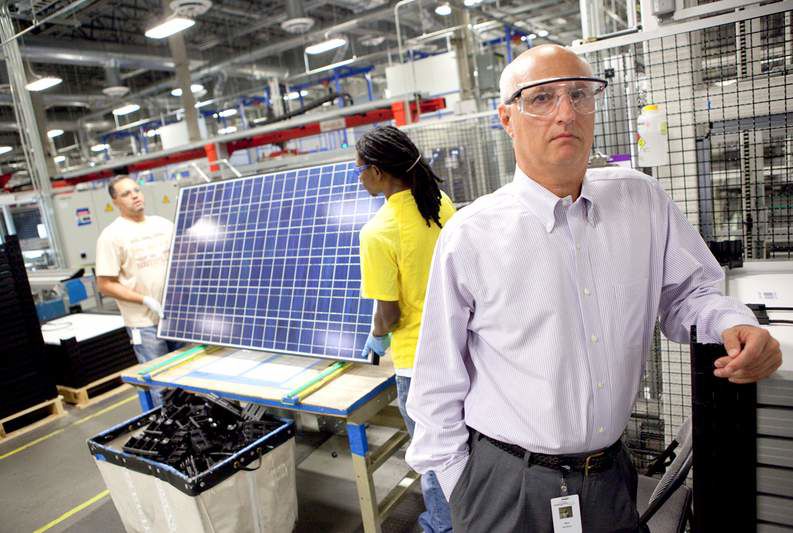U.S. solar panel maker moves work to China
Published 4:00 am Saturday, January 15, 2011

- Michael El-Hillow, CEO of Evergreen Solar, said that while the U.S. benefits from the rapidly declining cost of installing solar panels, “We expect the United States will continue to be at a disadvantage from a manufacturing standpoint.”
BEIJING — Aided by at least $43 million in assistance from the government of Massachusetts and an innovative solar energy technology, Evergreen Solar emerged in the last three years as the third-largest maker of solar panels in the United States.
But now the company is closing its main U.S. factory, laying off the 800 workers by the end of March and shifting production to a joint venture with a Chinese company in central China. Evergreen cited the much higher government support available in China.
The factory closing in Devens, Mass., which Evergreen announced earlier this week, has set off political recriminations and finger-pointing in Massachusetts. And it comes just as President Hu Jintao of China is scheduled for a state visit next week to Washington, where the agenda is likely to include tensions between the U.S. and China over trade and energy policy.
The Obama administration has been investigating whether China has violated the free trade rules of the World Trade Organization with its extensive subsidies to the manufacturers of solar panels and other clean energy products.
While a few types of government subsidies are permitted under international trade agreements, they are not supposed to give special advantages to exports — something that China’s critics accuse it of doing. The Chinese government has strongly denied that any of its clean energy policies have violated WTO rules.
Although solar energy still accounts for only a tiny fraction of U.S. power production, declining prices and concerns about global warming give solar power a prominent place in U.S. plans for a clean energy future — even if critics say the federal government is still not doing enough to foster its adoption.
Beyond the issues of trade and jobs, solar power experts see broader implications. They say that after many years of relying on unstable governments in the Middle East for oil, the U.S. now looks likely to rely on China to tap energy from the sun.
Evergreen, in announcing its move to China, was unusually candid about its motives. Michael El-Hillow, the chief executive, said in a statement that his company had decided to close the Massachusetts factory in response to plunging prices for solar panels. World prices have fallen as much as two-thirds in the last three years — including a drop of 10 percent during last year’s fourth quarter alone.
Chinese manufacturers, El-Hillow said in the statement, have been able to push prices down sharply because they receive considerable help from the Chinese government and state-owned banks, and because manufacturing costs are generally lower in China.
“While the United States and other Western industrial economies are beneficiaries of rapidly declining installation costs of solar energy, we expect the United States will continue to be at a disadvantage from a manufacturing standpoint,” he said.
Chinese solar panel manufacturers accounted for slightly over half the world’s production last year. Their share of the U.S. market has grown nearly sixfold in the last two years, to 23 percent in 2010, and is still rising fast, according to GTM Research, a renewable energy market analysis firm in Cambridge, Mass.
In addition to solar energy, China just passed the U.S. as the world’s largest builder and installer of wind turbines.
In a telephone interview in August, El-Hillow said he was desperate to avoid layoffs at the Devens factory. But he said Chinese state-owned banks and municipal governments were offering unbeatable assistance to Chinese solar panel companies.
Factory labor is cheap in China, where monthly wages average less than $300. That compares with a statewide average of more than $5,400 a month for Massachusetts factory workers. But labor is a tiny share of the cost of running a high-tech solar panel factory, El-Hillow said. China’s real advantage lies in the ability of solar panel companies to form partnerships with local governments and then obtain loans at very low interest rates from state-owned banks.






